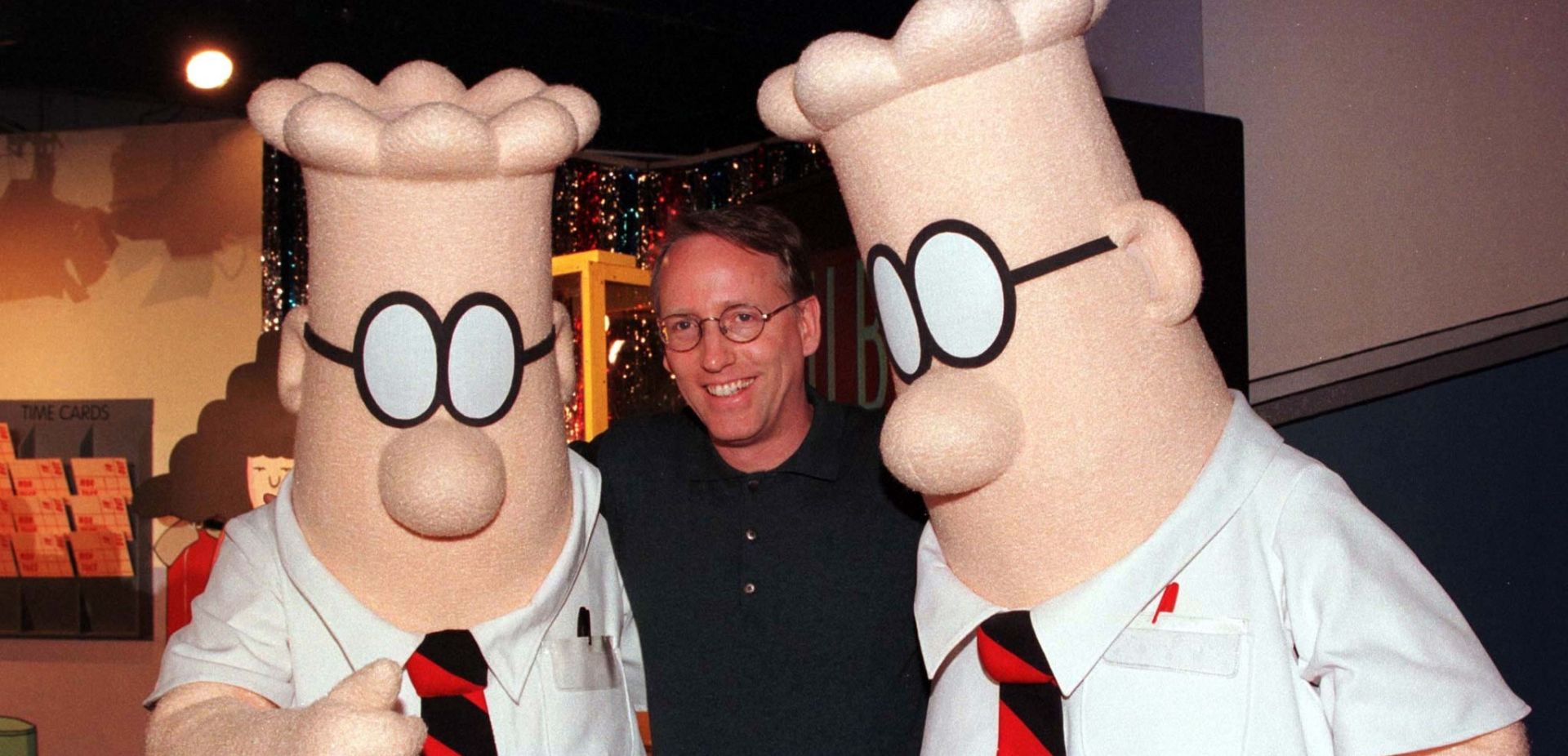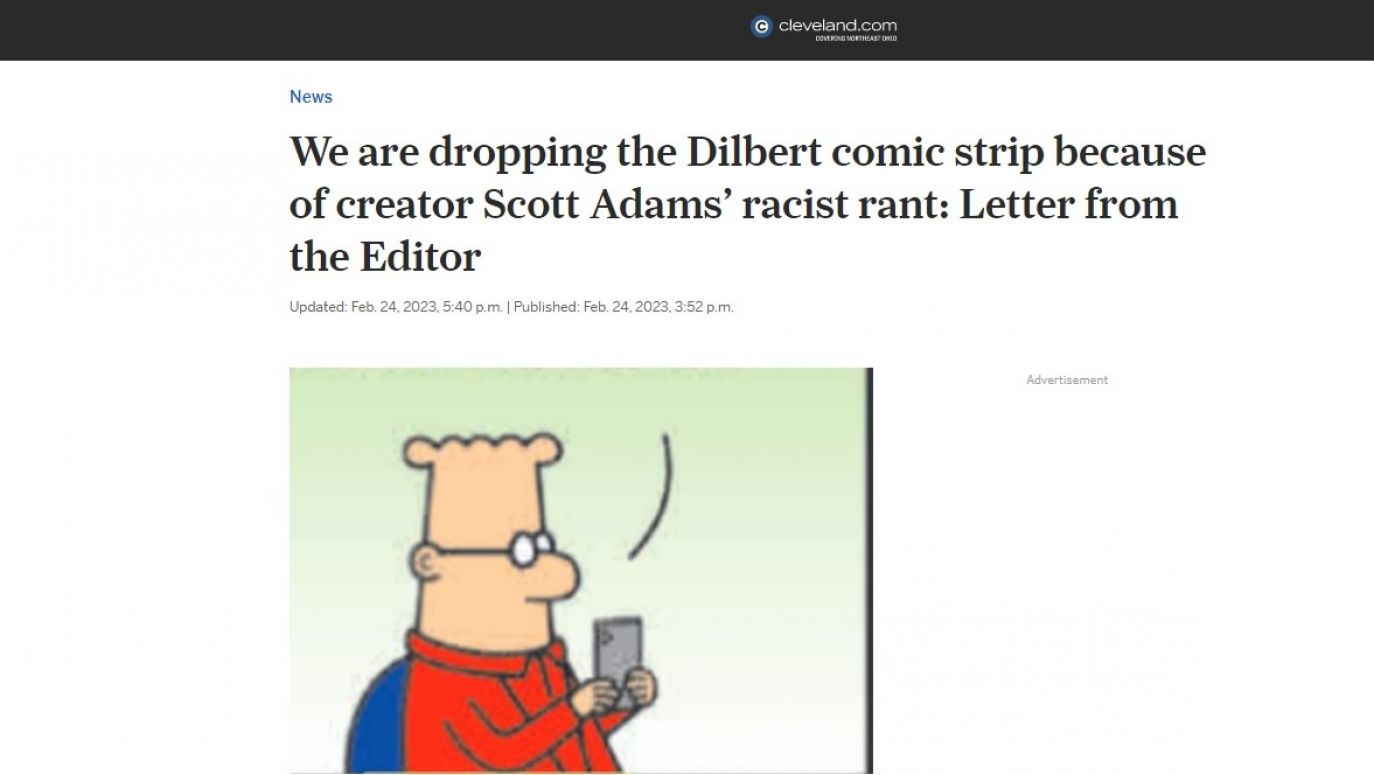Revocation (a term perhaps more appropriate than the one commonly used in the English language i.e.
cancelling) happens so often that writing about it risks the loss of readers. Ultimately, weeklies should focus on man bites dog, not the other way around. The fact is that a hypothetically, triumphal return to the library shelves of Harper Lee's To Kill a Mockingbird or Orwell's 1984 should constitute much bigger
news [than the cancellation of the Dilbert comic strip].
Let’s be honest, the reporting of successive revocations, deletions and decisions by moral censorship week after week is quite unambitious. It looks like a right-wing journalistic ploy that might just qualify as a column in a professional monthly magazine like "Nowe Książki" ["New Books"].
Chronicle of Cancellations
Such a column, call it "Chronicle of Cancellations", could report all the decisions about dethroned, stigmatized and ostracized books on a weekly basis. It would explain what had been cancelled by the Guardian and what by the Washington Post, for example. I imagine a column like that would be similar to the stock market quotations of pre-Internet times: boring strings of numbers carefully studied by experts.
 SIGN UP TO OUR PAGE
SIGN UP TO OUR PAGE 
The "Chronicle of Cancellations" would be eagerly pored over by the owners of second-hand bookshops and rebellious publishers, while also being read by small investors and moneygrubbers. For example, knowing that rarely available and forbidden goods appreciate in value, rather than ruining themselves on Canadian gold dollars or mouse-resistant buckwheat groats, they might hoard in their home safes a dozen copies, say, of "Winnie the Pooh" (increasingly perceived negatively given the traditional image of the mother in the person of the Kangaroo), "The Three Musketeers" (an apologia for violence and religion) or, not to be limited to classics, "The Crying of Lot 49 " by Thomas Pynchon (Oedipa Maas is, after all, a stereotypical image of a labile and greedy woman!).
Other than in such a chronicle, reports of the growing number of banned books are plain boring, and I gladly leave them to the indefatigable
whistleblowers of the right. If there's anything guaranteed to jolt the observer of modern culture out of his jaded state, surely it's acts of devouring the fathers and mothers of the revolution (I'm waiting for the day when some zealous Tik Toker will file a motion to withdraw books by Virginia Woolf and Margaret Atwood from the libraries) or situations in which authors themselves will be begging for their own cancellation, and finally getting it. And, I have the impression that this is exactly what happened with Scott Adams and his, as we once used to describe it, cult comic book, "Dilbert".
What? "Dilbert"? "Dilbert" that for years seemed to be the cry of revenge of the pushed around
white collars, employees of lower and mid-level corporations, tormented by their bosses' absurd decisions? The title character, along with Asok, Wally, Alice and half a dozen other personae, bravely try to survive in the office ruled by the nightmarish Pointy-Haired Boss and his allies: the perverse Piesbert and Phil-Prince of Twilight. This is what is called emancipatory and subversive, revolutionary and mocking reading. "We didn't live with Dilbert -- we
lived Dilbert," an experienced Polish manager, who has been working in international corporations for 30 years, told me.
Well, maybe that's why…
Conquest and defeat
"Dilbert" was conquering readers much like General Patton's Third Army had when advancing in France in 1944. Scott Adams' career began in the classic manner of an uplifting American tale of "garage millionaires". Early mornings, from 4 to 6 a.m., before setting off to work as a cashier and later manager at the Crocker National Bank branch in San Francisco, Adams was drawing what became the initial episodes of his famed cartoon strip. By 1991, "Dilbert" was appearing in a hundred magazines. By 1994, this had risen four-fold. By the year 2000, the strip was syndicated to two thousand publications worldwide.
The time was ripe to start selling books, gadgets and TV series. Moreover, it didn't bother anyone that Adams was now publishing books on a broad range of topics, including a pantheism manifesto ("God's Debris", 2001), while declaring his support for politicians of such disparate and opposing views as Clinton and Trump.
However, twenty years later, this
blitzkrieg turned into a
blitzrückzug. And maybe it is precisely the scale of this change that has proved so shocking. On February 24, Adams made a statement on his regular video blog "Coffee with Scott Adams" that was interpreted as racist (we'll come back to that in a moment). Two hours later, the publisher of Cleveland's largest daily newspaper, "The Plain Dealer", decided to end its syndication arrangement. "It wasn't hard for us," the newspaper's editor-in-chief, Chris Quinn, asserted in an editorial. Cleveland was followed by the "USA Today" network that publishes 92 state and local titles ranging from "The Cincinnati Enquirer" to "The Indianapolis Star".

 SIGN UP TO OUR PAGE
SIGN UP TO OUR PAGE 






